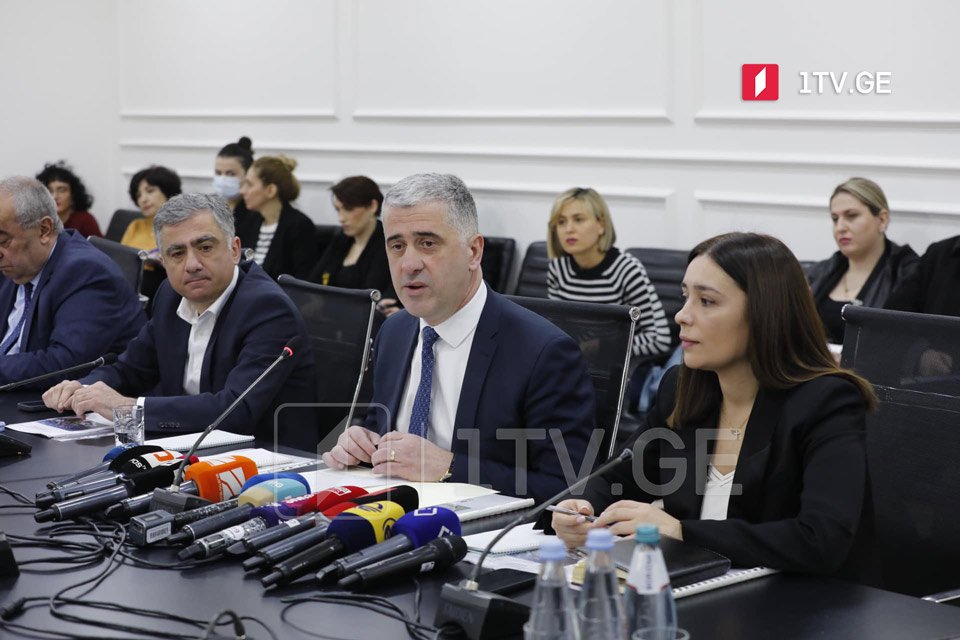Environment Protection and Agriculture Minister presents conclusion on Shovi, Nergeeti landslides
Georgian Minister of Environment Protection and Agriculture, Otar Shamugia, presented a conclusion of the National Environment Agency on the Shovi (Racha) August 3 and Nergeeti (Imereti) February 6-7 landslides.
The Minister underscored that the latest landslides led to human tragedies, and the Ministry’s responsibility was to identify threats and determine causes within its competency.
“Prediction of rapidly developing natural complex processes is difficult and, in many cases, impossible. Together with the field specialists and environmentalists, let us discuss the conclusions that were jointly prepared by the Georgian and international experts and specialists and define plans,” he said.
The Minister said the Environment Agency dispatched six geologists and hydrologists teams to Shovi resort to monitor the situation and prepare a report. The Environment Agency signed a cooperation agreement with Swiss company Geotesti, which studied the collected evidence (satellite, radar and descriptor information) and verified it with modern technologies.
According to Otar Shamugia, the Swiss specialists confirmed a sliding of land masses and no water swelling in the Bubistskali Gorge and the duration of the land mass movement, which was 7.5-10 minutes.
“Based on the conclusion, the climate changes caused the disaster,” he said.
Otar Shamugia went on to say that the Swiss experts recommended elaborate movement rules and the installation of warning signs in Bubustskali Gorge and Shovi Resort, while “carrying out capital protection measures is impossible” for the protection of humans and infrastructure, the specialists recommended “spacious planning of the territory.”
“The establishment of an early warning alarm system in the case of a similar-scale, complex natural event, due to the rapid development of the natural disaster, could not provide effective early warning and hazard mitigation,” the report said.
Concerning the landslides in Nergeeti village, the Minister explained that even though the Environment Agency listed the Baghdati municipality as a high-risk area in the 2022 information bulletin, they did not provide the exact location. Snow melting and heavy rains triggered the landslide processes. The geologists dispatched to the disaster site recommended the resettlement of 7 families, and they continued to monitor the situation.
The Minister stressed that amid global climate changes, the installation of early warning alarm systems should be the government’s priority. Otar Shamugia said that 245 hydro-meteorological stations would operate across Georgia by the end of 2024 with an increased budget of GEL 13 million to the National Environment Agency.
Otar Shamugia further stated that monitoring continued at 18 landslide active zones, and the number of such territories would increase to 29 by the end of 2024.

